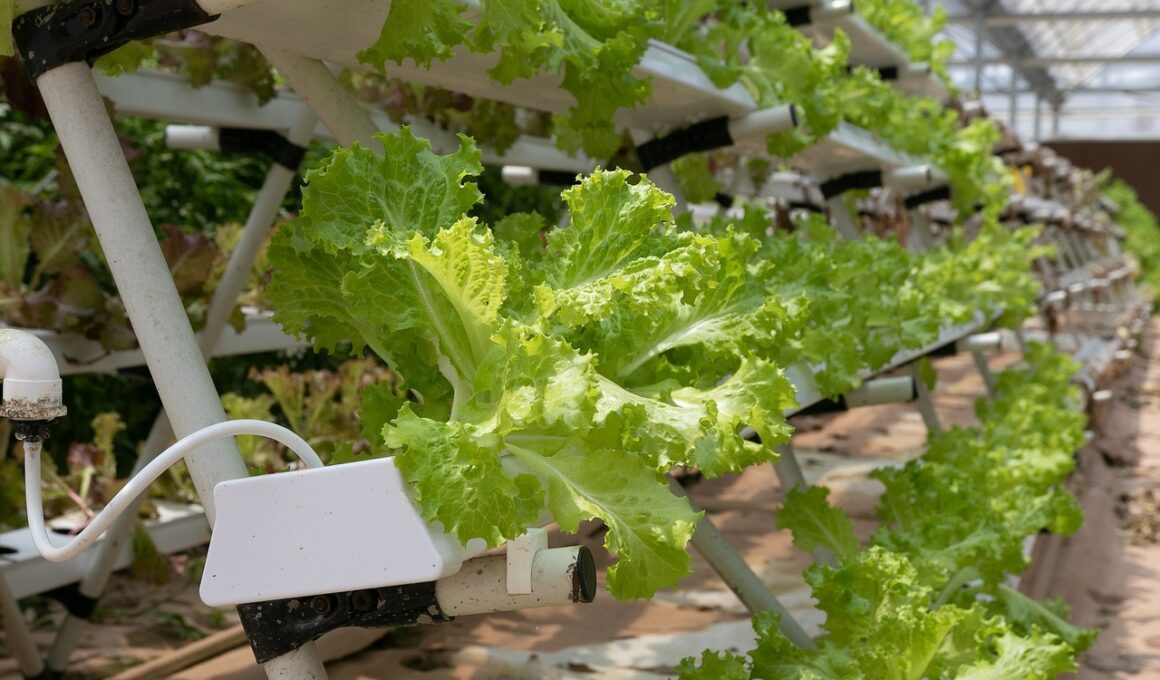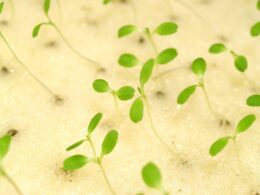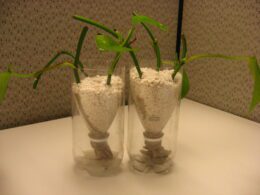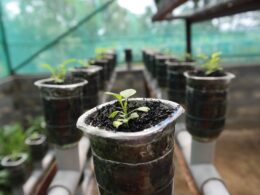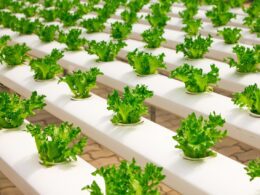Are you interested in growing your own carrots but don’t have a lot of outdoor space? Have you considered hydroponics as a way to grow your favorite root vegetable?
Hydroponics is a method of growing plants without soil and has become increasingly popular in recent years. The good news is that you can indeed grow carrots hydroponically, giving you a fresh and delicious supply right at your fingertips.
With hydroponics, you can control the environment in which your plants grow, ensuring they receive the right nutrients, lighting, and support. Plus, growing carrots hydroponically allows for year-round growth, regardless of the weather outside.
In this article, we’ll explore the world of hydroponics and show you how to successfully grow carrots using this method. So, get ready to become a master hydroponic gardener and enjoy the fruits (or veggies) of your labor!
Understanding Hydroponics
Hydroponics is a method of cultivating plants without soil, using nutrient-rich water instead. This type of farming has many benefits, including the ability to grow crops year-round, regardless of the weather. In addition, hydroponic farming uses less water and fewer pesticides than traditional farming methods.
There are several types of hydroponic systems, and each has its own advantages and disadvantages. For example, the deep water culture system involves suspending plants in nutrient-rich water, while the aeroponics system sprays nutrient-rich mist onto the plants. The ebb and flow system, on the other hand, floods the plant roots with water and then drains it away, allowing for better oxygenation of the roots.
If you’re interested in growing carrots hydroponically, it’s important to choose the right system for your needs. Some hydroponic systems may not be suitable for growing carrots, as they require a certain amount of space and support. However, with the right system and a little bit of patience, you can successfully grow carrots hydroponically and enjoy the benefits of fresh, healthy produce.
Growing Carrots Hydroponically
Get ready to experience a new and innovative way of cultivating everyone’s favorite orange root vegetable – carrots! Hydroponic systems have made it possible to grow a wide variety of carrots without the need for soil. This method of growing carrots has gained popularity among farmers and gardening enthusiasts alike because of its many benefits.
Carrot varieties that grow well in hydroponic systems include the Nantes, Danvers, and Imperator. These varieties have been known to thrive in hydroponic environments, producing high-quality and nutritious crops.
Hydroponic systems also allow for better control of the growing conditions, such as temperature, light, and nutrient levels, which can lead to higher yields and better-tasting carrots.
There are different types of hydroponic systems that can be used to grow carrots, including deep water culture, nutrient film technique, and drip irrigation. Each system has its own advantages and disadvantages, but they all offer an efficient and effective way of growing carrots without soil.
With the right hydroponic setup and proper care, you can enjoy a bountiful harvest of delicious and healthy carrots all year round.
Choosing the Right Growing Medium
Now it’s time to select the perfect medium for your carrot cultivation, so let’s dive into the options available. When it comes to growing hydroponic carrots, there are several mediums to choose from. Two popular choices are coconut coir and perlite.
Coconut coir is made from the fibrous material found on the outer shell of a coconut. It is a great option for hydroponic gardening because it is organic and renewable. Coconut coir has excellent water retention properties, which is important for carrots as they require consistently moist soil. It also provides good aeration for the roots, allowing them to breathe and grow properly.
Perlite is another option for growing hydroponic carrots. It is a type of volcanic glass that has been heated and expanded. Perlite is lightweight and porous, which makes it a great choice for aerating soil. It does not retain water as well as coconut coir, but it can be mixed with other mediums to create a more balanced growing environment.
When deciding on a growing medium for your hydroponic carrots, consider the benefits of using organic options like coconut coir. These are renewable resources that are good for the environment and can provide a healthier growing environment for your plants. By using a medium that is right for your carrots, you can ensure their success and enjoy a bountiful harvest.
Is It Possible to Grow Cucumbers Hydroponically Like Carrots?
Growing cucumbers hydroponically is a viable option just like growing carrots. This method eliminates soil dependency, allowing the plants to receive nutrients directly through water. With the right hydroponic system and nutrient solution, cucumbers can thrive and produce excellent yields, making it a popular choice for indoor gardening enthusiasts.
Monitoring and Maintaining Your Carrots
To ensure the success of your carrot crop, it’s important to monitor and maintain the temperature and humidity of your growing environment. You’ll also need to keep a close eye on the nutrient and pH levels in your hydroponic system.
Finally, be sure to stay on top of any potential pest or disease issues to protect your plants and maximize your yield.
Temperature and Humidity Control
Maintaining proper temperature and humidity levels is essential for successful hydroponic carrot cultivation. To ensure optimal growth, there are a few key steps you can take.
First, invest in temperature and humidity sensors that can be placed directly in your hydroponic system. This will allow you to monitor the levels in real-time and make any necessary adjustments.
Second, consider the design of your hydroponic system. Proper ventilation and air flow are crucial for regulating temperature and humidity. Make sure that your system is well-ventilated and that air is circulating throughout the space. Additionally, consider investing in a dehumidifier or humidifier to adjust levels as needed.
By taking these steps to control temperature and humidity, you can ensure that your hydroponic carrots will thrive.
Nutrient and pH Monitoring
Make sure you’re keeping a close eye on the nutrient and pH levels in your hydroponic setup to ensure that your carrots are getting the proper balance of nutrients for healthy growth. pH balancing is crucial to your plants’ health, as it affects the uptake of nutrients.
You can do this by testing the pH of your nutrient solution regularly and adjusting it as necessary. The ideal pH range for growing carrots hydroponically is between 5.5 and 6.5. If the pH is too high or too low, your plants may not be able to absorb the nutrients they need, which can lead to stunted growth or even death.
In addition to pH balancing, nutrient solution preparation is also important for growing healthy carrots hydroponically. You’ll need to mix the right amount of nutrients into your water to create a balanced solution that meets your plants’ needs. This can be done by following a nutrient schedule or by using a pre-made nutrient solution.
Keep in mind that different stages of growth may require different levels of nutrients, so it’s important to adjust your solution accordingly. With proper nutrient and pH monitoring, you can ensure that your hydroponic carrots are getting everything they need to thrive and produce a bountiful harvest.
Pest and Disease Control
Ensuring the health and longevity of your hydroponic carrot crop requires effective management of pests and diseases. One holistic approach to pest and disease control is integrated pest management (IPM), which combines cultural, physical, biological, and chemical control methods to prevent and manage outbreaks. Here are some ways to practice IPM and use natural remedies to keep your hydroponic carrots healthy:
- Monitor your plants regularly to catch any signs of pest or disease problems early on.
- Use physical barriers, such as netting or screens, to keep pests out of your hydroponic system.
- Encourage beneficial insects, such as ladybugs and lacewings, to control pest populations.
- Apply organic pesticides, such as neem oil or insecticidal soap, as a last resort.
- Use natural remedies, such as garlic or hot pepper spray, to deter pests and boost plant immunity.
By practicing IPM and using natural remedies, you can effectively manage pests and diseases in your hydroponic carrot crop. This will not only ensure the health and safety of your plants, but also contribute to a more sustainable and eco-friendly gardening practice.
Harvesting and Enjoying Your Carrots
Harvesting and enjoying your carrots can be a satisfying experience, especially when you get to taste the sweet crunch of your homemade harvest.
After several weeks of growth, your carrots will be ready to harvest. You can tell that they’re ready by gently digging around the top of the carrot and checking the size. Once they’re the size you want, gently pull them out of the growing medium.
Now that you’ve harvested your carrots, it’s time to enjoy them! You can make delicious carrot recipes like carrot cake, roasted carrots, or carrot soup. Store your carrots in the refrigerator to keep them fresh for up to a week. If you have a lot of carrots, consider freezing them for later use. To freeze, simply chop them into small pieces and store them in an airtight container in the freezer.
Growing carrots hydroponically can be a fun and rewarding experience. Not only do you get to harvest your own fresh produce, but you also get to enjoy the taste of your hard work. So why not try growing some carrots hydroponically and see what delicious creations you can come up with?
Frequently Asked Questions
What are the benefits of growing carrots hydroponically compared to traditional soil-based methods?
Growing carrots hydroponically offers numerous benefits compared to traditional soil-based methods. Not only does it allow for more control over the growing environment, but it also reduces the risk of pests and diseases. Additionally, hydroponic systems use less water and space than traditional methods, making it a more sustainable option.
When it comes to nutritional value, hydroponically-grown carrots have been found to contain higher levels of vitamins and minerals than those grown in soil. So if you’re looking to up your carrot game, consider giving hydroponic growing a try!
Can hydroponic-grown carrots produce the same level of nutrients as soil-grown carrots?
When it comes to hydroponic-grown carrots, the nutrient comparison to soil-grown carrots is a common concern. However, studies have shown that hydroponically-grown carrots can have comparable nutrient levels to their soil-grown counterparts.
Additionally, hydroponic systems can often result in a faster growth rate for carrots, meaning you can have a higher yield in a shorter amount of time.
With proper nutrient management, hydroponic-grown carrots can be a viable option for those looking to grow their own produce in a controlled and efficient way.
How much does it cost to set up a hydroponic system for growing carrots?
Setting up a hydroponic system for growing carrots can be a sustainable practice, but it comes with a cost analysis.
You’ll need to invest in equipment such as grow lights, water pumps, and nutrient solutions. The cost will depend on the size of your setup and the materials you choose.
However, hydroponic systems can save water and space compared to traditional soil gardening. Plus, you have more control over the growing conditions, which can result in higher yields and faster growth.
Overall, the cost of setting up a hydroponic system for growing carrots is an upfront investment, but it can pay off in the long run with sustainable practices and efficient use of resources.
Can hydroponic systems be used to grow other root vegetables besides carrots?
Looking to expand your hydroponic garden beyond carrots? You’ll be happy to know that many other root vegetables can be grown hydroponically using alternative techniques.
For example, beets, radishes, and turnips can all be grown in a hydroponic system with the right setup. These alternative vegetables can provide a delicious and healthy addition to your garden, while also offering the benefits of hydroponic growing, such as more efficient use of space and water.
So why not try your hand at growing some alternative root vegetables using hydroponic techniques? It’s a fun and rewarding way to enjoy fresh produce all year round.
Are there any specific pests or diseases that are more common in hydroponic carrot growing, and how can they be prevented?
When growing hydroponic carrots, it’s important to be aware of common pests and diseases that can affect your crop.
Aphids, spider mites, and thrips are all potential invaders that can be prevented with regular inspections and the use of insecticidal soap.
Root rot and powdery mildew are two common diseases that can be prevented by maintaining proper humidity levels and ensuring good air circulation.
Additionally, using sterilized equipment and maintaining a clean environment can help prevent the spread of any potential diseases.
By taking preventative measures, you can ensure a healthy and abundant crop of hydroponic carrots.
Conclusion
So, can you grow carrots hydroponically? The answer is a resounding yes!
Hydroponic gardening is a great way to grow fresh, healthy produce without the need for soil or traditional gardening methods. With the right equipment and a little bit of know-how, you can easily grow delicious carrots right in your own home.
To get started, you’ll need to understand the basics of hydroponic gardening and choose the right growing medium for your carrots. Make sure to monitor and maintain your plants carefully, adjusting nutrient levels and pH as needed to ensure healthy growth.
And when it’s time to harvest, you’ll be rewarded with crisp, flavorful carrots that are perfect for salads, soups, and snacking.
So go ahead and give hydroponic carrot growing a try – you won’t be disappointed!





